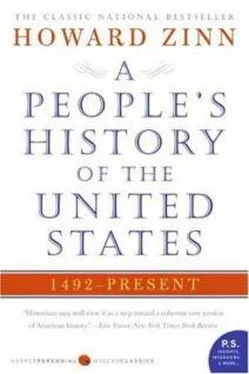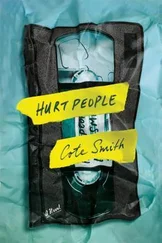Howard Zinn - A People
Здесь есть возможность читать онлайн «Howard Zinn - A People» весь текст электронной книги совершенно бесплатно (целиком полную версию без сокращений). В некоторых случаях можно слушать аудио, скачать через торрент в формате fb2 и присутствует краткое содержание. Издательство: Harper-Collins, Жанр: Фэнтези, на английском языке. Описание произведения, (предисловие) а так же отзывы посетителей доступны на портале библиотеки ЛибКат.
- Название:A People
- Автор:
- Издательство:Harper-Collins
- Жанр:
- Год:неизвестен
- ISBN:нет данных
- Рейтинг книги:4 / 5. Голосов: 1
-
Избранное:Добавить в избранное
- Отзывы:
-
Ваша оценка:
- 80
- 1
- 2
- 3
- 4
- 5
A People: краткое содержание, описание и аннотация
Предлагаем к чтению аннотацию, описание, краткое содержание или предисловие (зависит от того, что написал сам автор книги «A People»). Если вы не нашли необходимую информацию о книге — напишите в комментариях, мы постараемся отыскать её.
A People — читать онлайн бесплатно полную книгу (весь текст) целиком
Ниже представлен текст книги, разбитый по страницам. Система сохранения места последней прочитанной страницы, позволяет с удобством читать онлайн бесплатно книгу «A People», без необходимости каждый раз заново искать на чём Вы остановились. Поставьте закладку, и сможете в любой момент перейти на страницу, на которой закончили чтение.
Интервал:
Закладка:
Reagan came into office just after a revolution had taken place in Nicaragua, in which a popular Sandinista movement (named after the 1920s revolutionary hero Augusto Sandino) overthrew the corrupt Somoza dynasty (long supported by the United States). The Sandinistas, a coalition of Marxists, left-wing priests, and assorted nationalists, set about to give more land to the peasants and to spread education and health care among the poor.
The Reagan administration, seeing in this a «Communist» threat, but even more important, a challenge to the long U.S. control over governments in Central America, began immediately to work to overthrow the Sandinista government. It waged a secret war by having the CIA organize a counterrevolutionary force (the "contras"), many of whose leaders were former leaders of the hated National Guard under Somoza.
The contras seemed to have no popular support inside Nicaragua and so were based next door in Honduras, a very poor country dominated by the United States. From Honduras they moved across the border, raiding farms and villages, killing men, women and children, committing atrocities. A former colonel with the contras, Edgar Chamorro, testified before the World Court:
We were told that the only way to defeat the Sandinistas was to use the tactics the agency [the CIA] attributed to Communist insurgencies elsewhere: kill, kidnap, rob, and torture… Many civilians were killed in cold blood. Many others were tortured, mutilated, raped, robbed, or otherwise abused… When I agreed to join… I had hoped that it would be an organization of Nicaragnans… [It] turned out to be an instrument of the U.S. government…
There was a reason for the secrecy of the U.S. actions in Nicaragua; public opinion surveys showed that the American public was opposed to military involvement there. In 1984, the CIA, using Latin American agents to conceal its involvement, put mines in the harbors of Nicaragua to blow up ships. When information leaked out, Secretary of Defense Weinberger told ABC news: "The United States is not mining the harbors of Nicaragua."
Later that year Congress, responding perhaps to public opinion and the memory of Vietnam, made it illegal for the United States to support "directly or indirectly, military or paramilitary operations in Nicaragua." The Reagan administration decided to ignore this law and to find ways to fund the contras secretly, looking for "third-party support." Reagan himself solicited funds from Saudi Arabia, at least $32 million. The friendly dictatorship in Guatemala was used to get arms surreptitiously to the contras. Israel, dependent on U.S. aid and always dependable for support, was also used.
In 1986, a story appearing in a Beirut magazine created a sensation: that weapons had been sold by the United States to Iran (supposedly an enemy), that in return Iran had promised to release hostages being held by extremist Moslems in Lebanon, and that profits from the sale were being given to the contras to buy arms.
When asked about this at a press conference in November 1986, President Reagan told four lies: that the shipment to Iran consisted of a few token antitank missiles (in fact, 2,000), that the United States didn't condone shipments by third parties, that weapons had not been traded for hostages, and that the purpose of the operation was to promote a dialogue with Iranian moderates, in reality, the purpose was a double one: to free hostages and get credit for that, and to help the contras.
The previous month, when a transport plane that had carried arms to the contras was downed by Nicaraguan gunfire and the American pilot captured, the lies had multiplied. Assistant Secretary of State Elliot Abrams lied. Secretary of State Shultz lied ("no connection with the U.S. government at all"). Evidence mounted that the captured pilot was working for the CIA.
The whole Iran-contra affair became a perfect example of the double line of defense of the American Establishment. The first defense is to deny the truth. If exposed, the second defense is to investigate, but not too much; the press will publicize, but they will not get to the heart of the matter.
Once the scandal was out in the open, neither the Congressional investigating committees nor the press nor the trial of Colonel Oliver North, who oversaw the contra aid operation, got to the critical questions: What is U.S. foreign policy all about? How are the president and his staff permitted to support a terrorist group in Central America to overthrow a government that, whatever its faults, is welcomed by its own people as a great improvement over the terrible governments the U.S. has supported there for years? What does the scandal tell us about democracy, about freedom of expression, about an open society?
Out of the much-publicized «contragate» scandal came no powerful critique of secrecy in government or of the erosion of democracy by actions taken in secret by a small group of men safe from the scrutiny of public opinion. The media, in a country priding itself on its level of education and information, kept the public informed only on the most superficial level.
The limits of Democratic party criticism of the affair were revealed by a leading Democrat, Senator Sam Nunn of Georgia, who, as the investigation was getting under way, said: "We must, all of us, help the President restore his credibility in foreign affairs."
A few Democrats were critical, which was deplored by a Harvard professor, James Q. Wilson, who was a member of Reagan's Foreign Intelligence Advisory Board. Wilson looked back nostalgically to a "bipartisan consensus" (the equivalent of the one-party system in a totalitarian state). He worried most about "a lack of resolve to act like a great power."
It became clear that President Reagan and Vice-President Bush were involved in what became known as the Iran-contra affair. But their underlings scrupulously kept them out of it, illustrating the familiar government device of "plausible denial," in which the top official, shielded by subordinates, can plausibly deny involvement. Although Congressman Henry Gonzalez of Texas introduced a resolution for the impeachment of Reagan, it was quickly suppressed in Congress.
Neither Reagan nor Bush were indicted. Rather, the Congressional committee put the lesser culprits on the witness stand and several of them were indicted. One (Robert McFarlane, a former National Security Adviser to Reagan) tried to commit suicide. Another, Colonel Oliver North, stood trial for lying to Congress, was found guilty, but was not sentenced to prison. Reagan retired in peace and Bush became the next president of the United States.
In an ironic twist, an obscure citizen of the tiny town of Odon, Indiana, became a tangential actor in the Iran-contra controversy. This was a young man named Bill Breeden, a former minister who lived in a tepee in the woods with his wife and two children, teaching the children at home. Breeden's home town of Odon was also the home town of Admiral John Poindexter, McFarlane's successor as Reagan's National Security Adviser, who was heavily involved in the illegal activities of the Iran-contra affair.
One day Bill Breeden noticed that the town, to show its pride in its "home boy," had renamed one of its streets "John Poindexter Street." Breeden, a pacifist and critic of U.S. foreign policy, indignant at what he thought was a celebration of immoral behavior in government, stole the sign. He announced that he was holding it for "ransom"-$30 million, the amount of money that had been given to Iran for transfer to the contras.
He was apprehended, put on trial, and spent a few days in jail. As it turned out, Bill Breeden was the only person to be imprisoned as a result of the Iran-contra affair.
The Iran-contra affair was only one of the many instances in which the government of the United States violated its own laws in pursuit of some desired goal in foreign policy.
Читать дальшеИнтервал:
Закладка:
Похожие книги на «A People»
Представляем Вашему вниманию похожие книги на «A People» списком для выбора. Мы отобрали схожую по названию и смыслу литературу в надежде предоставить читателям больше вариантов отыскать новые, интересные, ещё непрочитанные произведения.
Обсуждение, отзывы о книге «A People» и просто собственные мнения читателей. Оставьте ваши комментарии, напишите, что Вы думаете о произведении, его смысле или главных героях. Укажите что конкретно понравилось, а что нет, и почему Вы так считаете.












